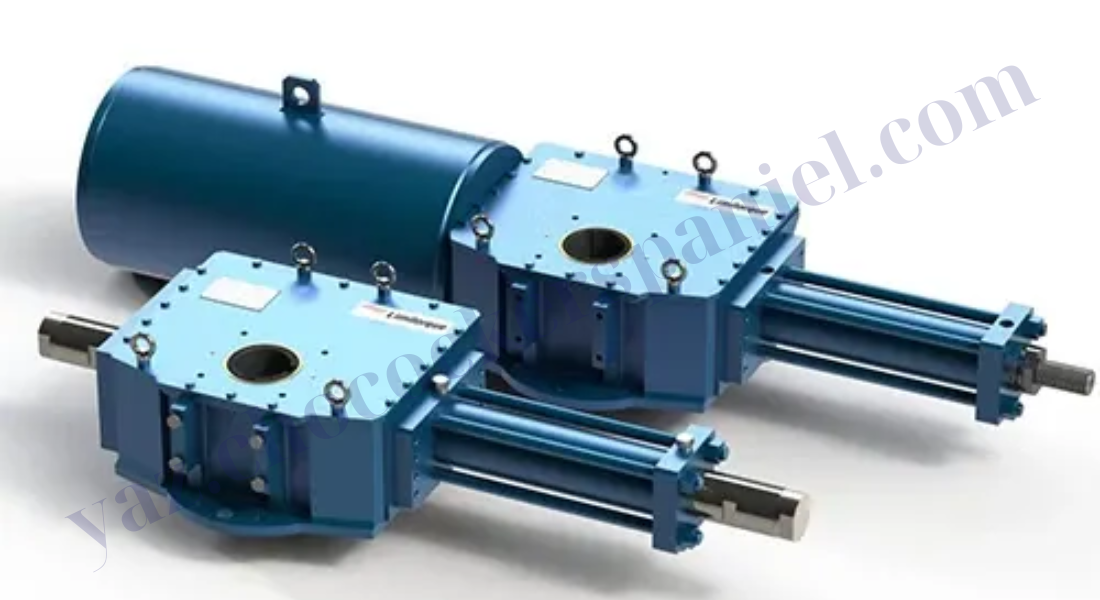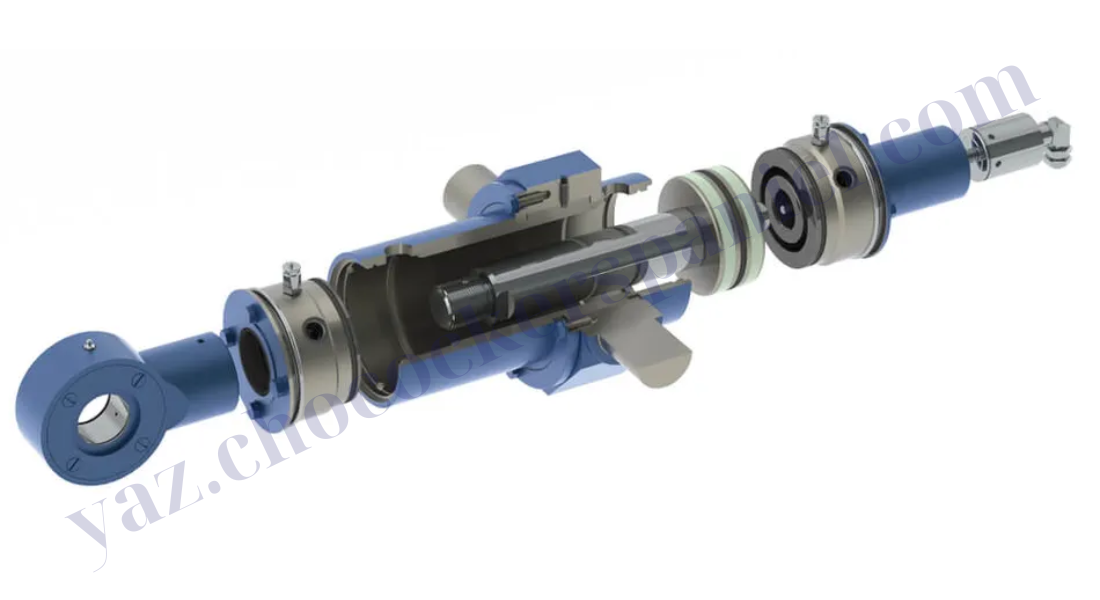Industrial hydraulic actuators play a pivotal role in powering heavy machinery across various industries. Known for their ability to handle massive loads with precision, these devices are integral to sectors like construction, manufacturing, and transportation. This article delves into their functionality, benefits, applications, and advancements, offering insights for professionals seeking robust and reliable solutions.
How Industrial Hydraulic Actuators Work
Hydraulic actuators convert hydraulic energy into mechanical motion. By using pressurized fluid, they deliver unparalleled force and control. This makes them ideal for operations requiring precision and high power output.
Core Components of Hydraulic Actuators
Hydraulic actuators consist of key elements, including cylinders, pistons, valves, and a fluid reservoir. The interplay of these components ensures smooth and efficient motion in demanding environments.
Types of Motion Delivered
Industrial hydraulic actuators provide linear or rotary motion, catering to a wide range of industrial needs. Linear actuators excel in lifting and pushing tasks, while rotary actuators are used for rotational applications like turning valves or moving levers.
Advantages of Industrial Hydraulic Actuators
Superior Force Generation
These actuators deliver immense force, making them suitable for lifting, pressing, or holding heavy loads in industries such as construction and mining.
Precision and Control
Industrial hydraulic actuators offer exceptional control over motion, ensuring accuracy in tasks requiring fine adjustments or steady pressure.
Durability in Harsh Environments
Their robust construction allows them to operate in extreme conditions, including high temperatures, heavy vibrations, and corrosive environments.
Versatile Applications
From assembly lines to offshore rigs, hydraulic actuators are adaptable to various industrial applications, providing consistent performance.
Applications of Industrial Hydraulic Actuators
Manufacturing and Assembly Lines
In factories, hydraulic actuators power presses, conveyors, and robotic arms, streamlining production processes and improving efficiency.
Construction and Earthmoving Equipment
Hydraulic actuators drive the movement of cranes, excavators, and bulldozers, enabling them to perform heavy lifting and precise digging operations.

Energy and Utilities Sector
In power plants and oil refineries, these actuators control valves and dampers, ensuring smooth operation of critical systems.
Aerospace and Defense
Aircraft landing gear systems and military equipment often rely on hydraulic actuators for their strength and reliability.
Choosing the Right Industrial Hydraulic Actuators
Assess Load and Force Requirements
Select an actuator that matches the load and force demands of your application to ensure optimal performance and longevity.
Consider Operating Environment
Evaluate factors like temperature, humidity, and exposure to corrosive elements. Choose materials and designs that withstand harsh conditions.
Check Motion Type Needed
Determine whether linear or rotary motion suits your application. Each type of actuator is tailored to specific tasks.
Prioritize Efficiency and Energy Use
Opt for actuators with efficient designs to reduce energy consumption and operational costs.
Industrial Hydraulic Actuators vs. Other Actuation Systems
Hydraulic vs. Pneumatic Actuators
Hydraulic actuators deliver higher force and precision than pneumatic systems, making them better suited for heavy-duty tasks. However, pneumatic actuators excel in lighter, faster applications.
Hydraulic vs. Electric Actuators
Electric actuators offer precision and control but lack the power density of hydraulic systems. Hydraulic actuators remain the go-to choice for demanding operations.
Hydraulic vs. Mechanical Actuators
Mechanical actuators are reliable for simple tasks, but hydraulic systems provide greater versatility, power, and control for complex industrial applications.
Innovations in Hydraulic Actuator Technology
Smart Sensors for Enhanced Monitoring
Modern hydraulic actuators integrate sensors to monitor performance metrics like pressure, temperature, and position, ensuring real-time diagnostics.
Energy-Efficient Designs
Innovations focus on reducing energy wastage by improving fluid dynamics and minimizing leakages, making hydraulic systems more sustainable.
Compact and Lightweight Models
Advances in materials and design enable the development of compact actuators without compromising power, allowing integration into tighter spaces.
Remote Control Capabilities
Wireless technologies are making remote operation of hydraulic actuators possible, enhancing safety and accessibility in hazardous environments.
Maintenance Tips for Industrial Hydraulic Actuators
Regular Fluid Checks
Monitor fluid levels and quality to prevent contamination or depletion, which can impact performance and lifespan.
Inspect for Leaks
Frequent inspections help identify and address leaks promptly, maintaining system efficiency and avoiding costly downtime.
Clean Components Thoroughly
Dirt and debris can affect functionality. Clean external components regularly and flush the system when necessary.
Follow Manufacturer Guidelines
Adhere to recommended maintenance schedules and use compatible replacement parts to ensure optimal operation.
Common Questions About Hydraulic Actuators
What makes hydraulic actuators essential in heavy industries?
Their ability to generate immense force and precise control makes them indispensable in applications requiring reliability and power.
How do they differ from pneumatic systems?
Hydraulic systems operate under higher pressure, offering greater force and control compared to pneumatic actuators, which are better suited for lighter, quicker tasks.
Can hydraulic actuators be used in extreme environments?
Yes, their robust construction and resistance to harsh conditions make them ideal for challenging environments like offshore rigs and mining sites.
Why Industrial Hydraulic Actuators Are a Smart Investment
Industrial hydraulic actuators deliver unmatched performance in demanding operations, making them essential for industries seeking durability, precision, and power. Their adaptability and long lifespan further solidify their position as a cornerstone of industrial machinery.
Whether enhancing production lines, powering heavy equipment, or managing critical systems, hydraulic actuators provide reliable solutions tailored to industrial challenges. Investing in the right actuator ensures efficiency, safety, and success in your operations.
